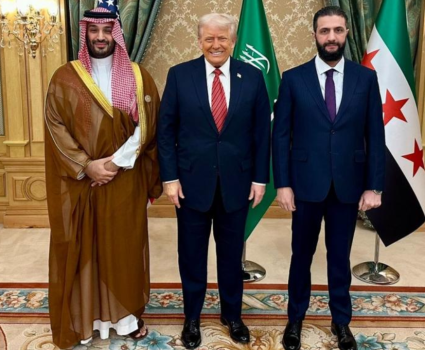ERBIL (Kurdistan24) – Syria’s transitional president Ahmad al-Sharaa will participate in the 80th session of the United Nations General Assembly in New York, marking the first time since 1967 that a Syrian head of state addresses the world body from its iconic podium
The Syrian Arab News Agency (SANA) reported on Wednesday that al-Sharaa will attend the high-level week between September 23 and 30, accompanied by Foreign Minister Asaad Hassan al-Shibani and a senior diplomatic delegation.
SANA underlined that al-Sharaa’s participation makes him the first Syrian president to speak at the UN General Assembly since former President Nour al-Din al-Atassi (1966–1970).
Following the June 1967 Arab-Israeli war, during which Syria lost the Golan Heights to Israel, Damascus adopted a rigid stance toward international institutions, viewing the UN as biased due to U.S. and Western support for Israel. For more than five decades, this position meant no Syrian president appeared before the General Assembly at the head-of-state level.
Al-Sharaa’s attendance therefore carries profound historical significance, signaling both a break with decades of isolation and the challenges of reintegrating Syria into international diplomacy after years of conflict.
Post-Baathist Syria and International Reintegration
The announcement comes less than a year after the collapse of Baath Party rule on December 8, 2024, which ended 61 years of single-party control, including 53 years under the Assad family. The transitional government led by al-Sharaa has sought to re-establish Syria’s place in the international community, although the road has been fraught with difficulties.
Despite backing from the United States, Türkiye, and Saudi Arabia, efforts to normalize Syria’s international standing face obstacles, including ongoing internal conflicts and widespread anger over atrocities committed during the nine months of al-Sharaa’s rule.
- Amnesty International has documented what it labeled as “war crimes” in Syria’s coastal provinces earlier this year. Between March 6 and 10, sectarian massacres in Latakia, Tartous, and Hama killed at least 1,169 civilians, including 103 women and 52 children, according to the Syrian Center for Media and Freedom of Expression
The massacres deepened sectarian tensions, particularly in southern Syria, where online videos circulated with chilling threats against Alawites, Druze, and Kurds.
Tensions have since spilled into new military confrontations. On Wednesday, heavy clashes erupted in eastern Aleppo between the Syrian Democratic Forces (SDF) and Damascus-backed units, underscoring the volatility on the ground even as Syria seeks diplomatic rehabilitation abroad.
According to a statement carried by SANA, the Syrian Ministry of Defense accused the SDF of launching “an irresponsible and sudden campaign of heavy shelling” from positions around al-Jarrah military airport and Maskanah, striking civilian homes in several villages. The ministry reported that two civilians were killed and three injured, vowing to continue targeting the sources of fire.
The SDF rejected the allegations, countering that its fighters had repelled an infiltration attempt by “unruly groups affiliated with the Damascus government” in the Deir Hafar area. In a statement, the SDF asserted: “Our forces decisively repelled the infiltration and artillery attacks… and completely thwarted their attempts.”
This flare-up follows earlier confrontations in Deir Ezzor in late August, where Damascus-backed groups attacked SDF positions. Regional monitoring groups report that Damascus has amassed as many as 50,000 troops near Palmyra, heightening fears of a wider offensive unless the SDF relinquishes control of territories under the Democratic Autonomous Administration of North and East Syria (DAANES).
Al-Sharaa’s upcoming appearance at the UN General Assembly thus comes at a critical juncture for Syria. On one hand, it symbolizes a long-awaited return to the international stage after nearly six decades of absence. On the other, it occurs against a backdrop of unresolved conflict, sectarian wounds, and political fragmentation that continue to shape the country’s fragile transition.
Whether al-Sharaa’s presence in New York will mark the beginning of Syria’s reintegration—or serve only as a symbolic gesture overshadowed by ongoing violence.
https://www.kurdistan24.net/en/story/86 ... since-1967























